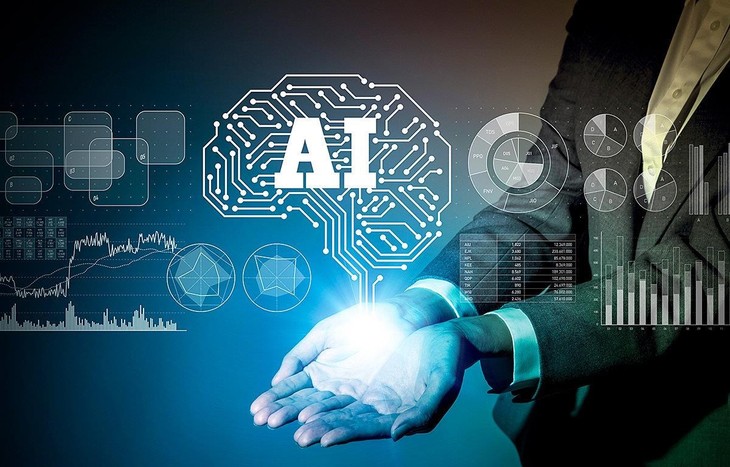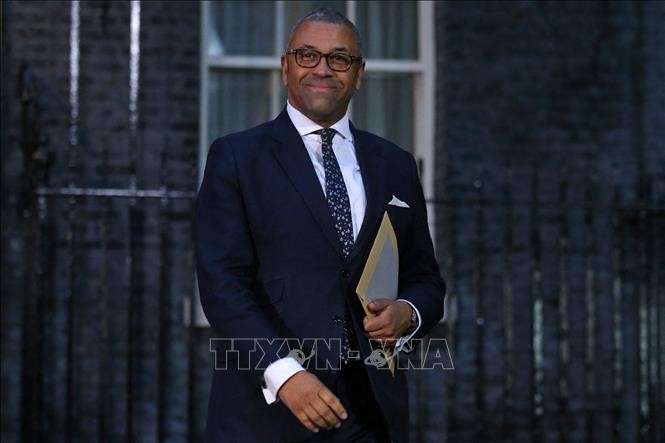(VOVWORLD) - The UN Security Council on Monday convened its first meeting to discuss the potential risks to global peace and security of Artificial Intelligent (AI). AI, which is seen as a breakthrough of the 4th Industrial Revolution, represents a huge potential benefit as well as a huge risk for mankind.
 (Illustrative photo) (Illustrative photo) |
AI is affecting every aspect of human life: it enables facial recognition and visual assistants on our smart phones, personalizes online shopping, news, video, and music, and controls self-driving cars and commercial, educational, and medical robots.
Potential risks to global peace and security
UN Secretary-General Antonio Guterres said in his opening speech that AI offers new potential to improve health, education, and other areas of our lives, but the High Commissioner for Human Rights has expressed alarm over evidence that AI can amplify bias, reinforce discrimination, and enable new levels of authoritarian surveillance. The UN is increasingly using AI to identify patterns of violence, monitor ceasefires, and do other things to strengthen its peacekeeping, mediation, and humanitarian efforts.
But AI tools can also be used by those with malicious intent to spread misinformation and cause horrific consequences globally. “Without action to address these risks, we are derelict in our responsibilities to present and future generations,” said Mr. Guterres. He thanked countries for coming together at the United Nations to set new international rules to control AI. Countries should work toward signing a legally binding instrument by 2026 prohibiting lethal autonomous weapons systems that function without human control or oversight. He welcomed calls from some UN members for the creation of a new UN entity to support collective efforts to govern AI, inspired by such models as the International Atomic Energy Agency (IAEA), the International Civil Aviation Organization (ICAO) or the Intergovernmental Panel on Climate Change.
 Britain’s Foreign Secretary James Cleverly (photo: VNA) Britain’s Foreign Secretary James Cleverly (photo: VNA) |
Britain’s Foreign Secretary James Cleverly, whose country holds the UN Security Council’s rotating presidency for July, said AI knows no borders. It will affect every area of human life and can enhance or disrupt global strategic stability. Mr. Cleverly stressed the need for a broad alliance of international partners across various sectors.
Chinese Ambassador to the UN Zhang Jun called AI a double-edged sword. Whether it is good or evil, depends on how mankind uses it and regulates it. China supports the central coordinating role of the UN in this regard, he said.
US Deputy Ambassador to the United Nations Jeffrey DeLaurentis said that, in managing AI and other emerging technologies, countries need to work together to address human rights issues and threats to peace and security.
Actions of the international community
The potential risks of AI worry many people. The US and Europe have tightened control of AI. The EU is working on writing the world's first comprehensive law governing AI.
The European Parliament on July 14 adopted a negotiating position on the Artificial Intelligence Act, which aims to soon enact a legal regulatory framework for AI, but has done nothing to hold back development. Rules should ensure that all AI developed and used in Europe is fully in line with EU rights and values, including human oversight, safety, privacy, transparency, non-discrimination, and social and environmental wellbeing. If the European Parliament and 27 member states reach an agreement later this year as scheduled, the bloc will have the world’s first AI law.
During a visit to the US in early June, British Prime Minister Rishi Sunak said Britain plans to hold an AI summit later this year to discuss perhaps the biggest challenge of the 21st century.
In June, US Senators introduced two separate bipartisan AI bills. One of them requires US administrative agencies to be transparent when using AI to interact with people. The bill also requires the administration to set up a mechanism for people to complain about decisions made by AI. Another would establish an office to determine if the US is remaining competitive in the latest technologies.
On July 13t China issued interim rules to regulate generative AI, which is AI algorisms that create content, such as images, video, audio, computer code, and documents. Set to take effect in the middle of next month, it will be China’s first AI rules.
Technology businesses have warned of bad consequences if technology is developed in the wrong direction, and have called on governments to quickly agree on AI oversight rules.